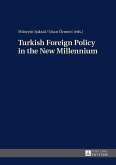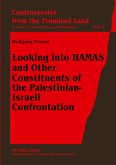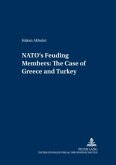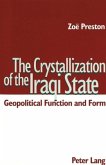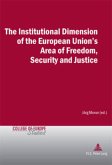The decades of the 1980s and 1990s represented the golden era of 'alternative security' reflected politically in the idea of 'co-operative security' and militarily in proposals concerning the adoption by states of 'non-offensive defence' strategies. Alternative security aimed at addressing the political and military problems in Europe created by the East-West confrontation. When the Cold War ended, efforts were undertaken to apply the principles of co-operative security and non-offensive defence in world regions other than Europe. However, political realities have prevented many states from adopting such policies and strategies.
This volume seeks to provide an empirical contribution to the existing literature on co-operative security and non-offensive defence by focusing on the Greek-Turkish and the Arab-Israeli conflicts. It argues that for states living in what has been called the 'zone of war', the adoption of policies of co-operative security and non-offensive defence is highly unlikely and to a considerable degree dangerous. A set of conditions is put forward as a prerequisite for the acceptance and implementation of the above-mentioned policies by the states concerned. It has been written in such a way that it can be used as a textbook by students or anyone else interested in security analysis, strategic studies and international relations. It has been based on the idea that the three fields are so interconnected that any effort to examine an issue in the light of only one of these fields may seriously distort reality. The book can also be useful to those interested in the Greek-Turkish and the Arab-Israeli conflicts. It examines not only the issues in dispute but, most importantly, it points to the 'strategic' logic which underlines the policies and attitudes of the actors involved in these conflicts.
This volume seeks to provide an empirical contribution to the existing literature on co-operative security and non-offensive defence by focusing on the Greek-Turkish and the Arab-Israeli conflicts. It argues that for states living in what has been called the 'zone of war', the adoption of policies of co-operative security and non-offensive defence is highly unlikely and to a considerable degree dangerous. A set of conditions is put forward as a prerequisite for the acceptance and implementation of the above-mentioned policies by the states concerned. It has been written in such a way that it can be used as a textbook by students or anyone else interested in security analysis, strategic studies and international relations. It has been based on the idea that the three fields are so interconnected that any effort to examine an issue in the light of only one of these fields may seriously distort reality. The book can also be useful to those interested in the Greek-Turkish and the Arab-Israeli conflicts. It examines not only the issues in dispute but, most importantly, it points to the 'strategic' logic which underlines the policies and attitudes of the actors involved in these conflicts.

